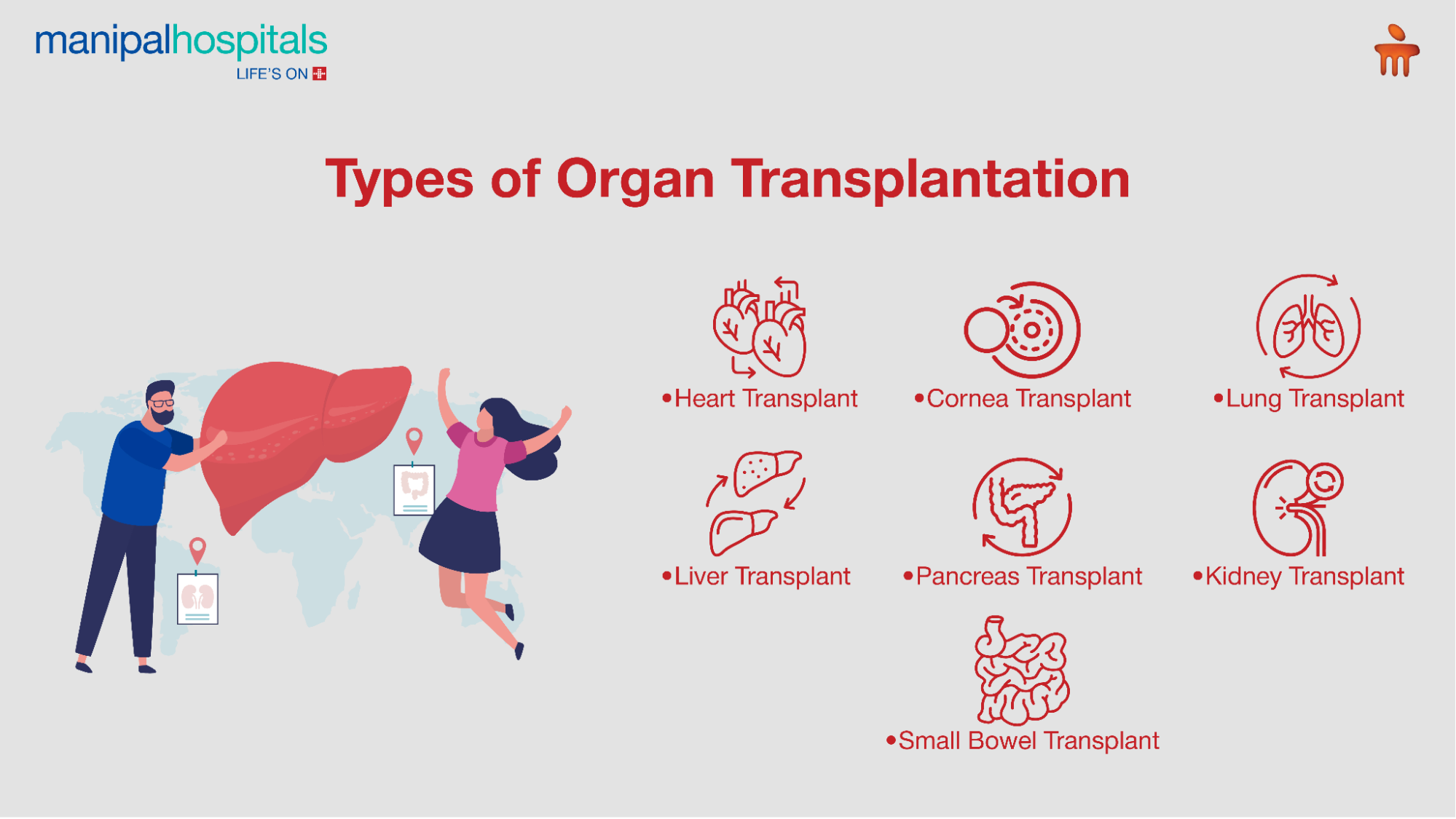
Organ donation helps bridge the gap between life and death for numerous patients. What if the key to saving someone’s life could be as simple as a selfless decision to donate? As per the Organ Procurement of Transplant Network (OPTN, 2015), the organs obtained from one deceased donor can provide life to approximately eight people.
In India, despite global efforts to improve organ donation, there remains a significant demand-supply gap. However, India ranks third in the world in terms of performing organ transplants, including living-donor liver transplants, becoming a vital option for many in need.
Synopsis
What You Should Know About Organ Transplantation?
Organs can be either obtained from a non-living donor (i.e., the organ is procured from a person who is near death or has died) or a living donor. Living donors are of two types: directed donors and non-directed donors. Directed donors are those who provide their organs for transplantation to specific recipients, preferably to close relatives or friends.
On the other hand, non-directed donors do not name specific recipients and are selected based on blood type compatibility and medical need. Common living donations include living donor kidney transplants and living donor liver transplants, and rarely, lungs, intestines, and pancreatic segments are transplanted
The Organs Involved in Donation/Transplantation
There are several tissues as well as organs that can be donated and transplanted. Tissues include bone, cartilage, blood vessels, corneas, heart valves, skin, and tendons. Organs can include the heart, liver, kidney, lung, liver, intestine, and pancreas. A brief on the seven common organ transplantations is given below:

Kidney Transplantations
Kidney (renal) transplants are typically recommended for individuals with end-stage renal disease (ESRD), when the kidneys can no longer function adequately. Common symptoms that may indicate kidney issues are back pain, frequent urination, or swollen feet. The transplant can come from a living donor or a deceased donor.
Liver Transplantations
Liver transplantation becomes necessary when the liver fails to function adequately, commonly due to chronic liver disease, cirrhosis, or acute liver failure. Common warning signs of liver issues are abdominal pain, dark urine, and loss of appetite. The organ may be taken from a living donor liver transplant or a deceased transplant, depending on the situation.
Heart Transplantations
Heart transplants are usually recommended when advanced heart failure does not respond to medications, lifestyle changes, or surgical interventions. Each patient undergoes a rigorous assessment to confirm eligibility for the transplant. Symptoms suggestive of severe heart failure are chest pain, shortness of breath, and dizziness.
Lung Transplantation
Lungs are usually obtained from a deceased donor and are usually used on patients with severe lung conditions that are not resolved with medications or surgery. Based on the severity of the condition, either one or both lungs are transplanted. In some situations, multiorgan transplants, which mostly include the heart, are also performed.
Cornea Transplantation
Corneal transplantation, often known as keratoplasty, involves replacing a part of the cornea with the corneal tissue obtained from a deceased donor. It aims to reduce pain, improve vision, and improve the appearance of diseased or damaged corneas.
Pancreatic Transplants
Pancreatic transplantation is done to replace a diseased pancreas with a healthy one, usually obtained from deceased donors. There are several types, such as combined kidney-pancreas transplantation, pancreas-after-kidney transplantation, and pancreatic islet cell transplantation.
Small bowel transplantation
Also called an intestinal transplant, a small bowel transplant replaces a shortened or diseased small bowel with healthy ones obtained from diseased or living donors. However, multi-visceral and combined bowel-liver transplants are done by procuring organs from deceased donors.
What Are the Challenges and Ethical Issues in Organ Transplantation?
Some of the challenges and ethical issues in organ transplantation include:
-
Informed consent: Consents and wishes to donate given by donors are sometimes overridden by family members, creating conflict.
-
Organ Commercialisation and Trafficking: Illegal trafficking and commercialisation of organs have become a global concern, mainly due to emotional and financial exploitation and coercion.
-
Disparity in Allocation: Disparity in favouring wealthier individuals for organ donation instead of those who are in need is present, which is a concern.
-
Religious Beliefs: Certain religious and cultural beliefs may discourage or prohibit organ donation. Respectful dialogue and proper awareness are crucial in such concerns.
-
High Costs and Inadequate Infrastructure: The cost involved in transplantation can be high, and access to post-care often makes patients from middle- and lower-income backgrounds struggle. Moreover, inadequate infrastructure can also contribute to complications.
Conclusion
Many advances in organ transplantation are under development today, with 3D bioprinting of organs for transplantation, xenotransplantation (i.e., transplantation of organs from animals, e.g., pig hearts), and immunosuppressive therapies to counter the risks of organ rejection.
The Department of Organ Transplant at Manipal Hospitals, Kolkata, is adept at carrying out several successful organ transplantations, including a living donor liver transplant. Patients can visit this high-tech hospital in case a transplant is recommended or they require a second opinion.
FAQ's
In India, the requirement for organs has increased dramatically due to an increased number of conditions like kidney failure, diabetes, heart failure, etc. With organ donation, these patients have a chance at receiving life-saving transplants, improving their overall well-being, and extending their lifespan.
The main organs that can be donated include the kidneys, liver, heart, lungs, pancreas, intestines, and corneas. Tissues such as bone, cartilage, blood vessels, heart valves, skin, and tendons can also be donated.
The first step is registering as an organ donor. You can sign up through national or local registries, on your driver's license, or through health-related forms. It's important to communicate your decision with family members to ensure your wishes are followed.
Common risks of undergoing organ transplantations include organ rejection; infections like hepatitis and, in rare cases, HIV; side effects of immunosuppressive medications; the requirement for blood transfusion; and anaesthesia complications.
There is no age limit as such for patients to undergo organ transplantation. Although age is a factor, doctors also take into consideration the severity of your condition, overall health, likelihood of success, and recovery outcomes. Discussions will be done with patients to ensure the best possible outcomes.
Manipal Hospitals go through a very systematic and comprehensive process to find the right donor for you. Factors like medical urgency, organ type and size, blood type, and genetic makeup are all considered to make sure you are compatible with transplantation.
You can schedule an appointment with specialists in the Department of Organ Transplant at Manipal Hospitals, Broadway, by contacting us or visiting our website.
Visit: https://www.manipalhospitals.com/kolkata
Contact no: 033 6907 0001






















 6 Min Read
6 Min Read



.png)








